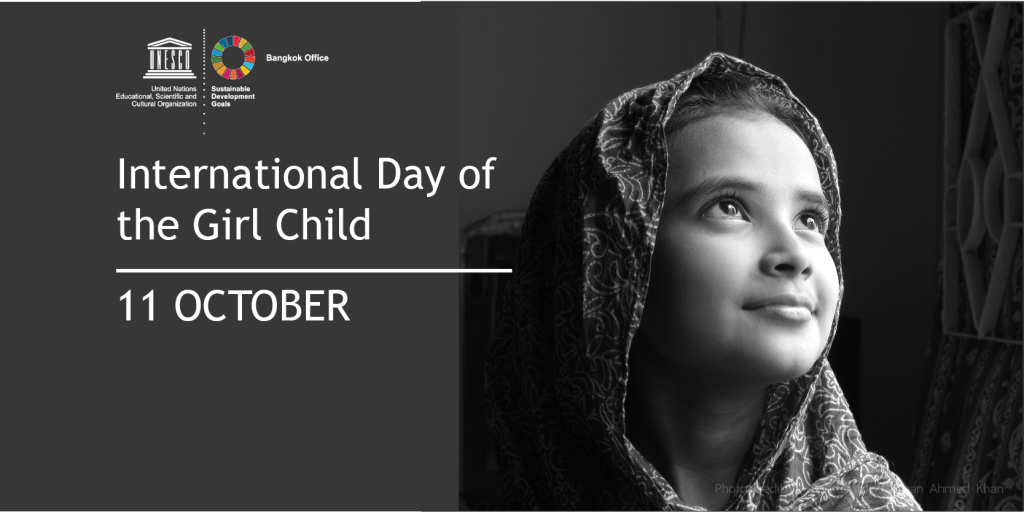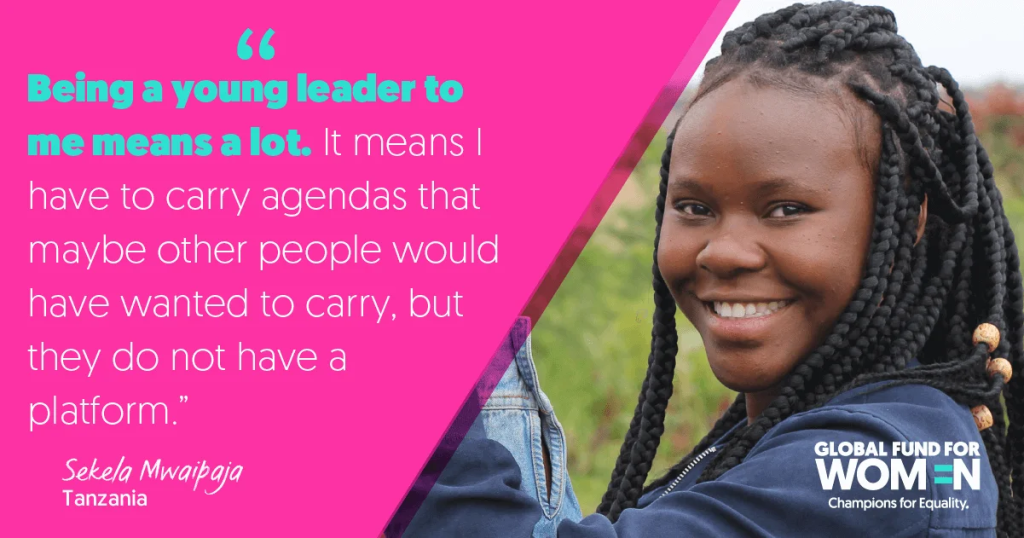Shimbo Pastory
This article was published in The Citizen Newspaper – Tanzania on 16th October, 2022.
Tanzania numbers among countries that have in the past three decades responded appropriately to the global crisis of under-empowerment of the girl child. It is a successful feat but still a work in progress.
The government in collaboration with social institutions, organizations, movements and the general public, has done a great deal of work to safeguard the girl child from abuse, violence and harm, to restore her freedom, dignity and endangered rights, to make her voice heard, to put an end to early and forced marriages and other harmful cultural practices like FGM, and to sensitize the wider citizenry on the value of giving her equal access to education.
With the world celebrating the International Day of the Girl Child on Tuesday 11 October, it is an opportunity to review the progress made so far both in policies and in praxis.
Reviews of revised policies in education, social welfare, employment and sociopolitical representation in Tanzania have indicated a rise in the number of females who have been able to ascend progressively in the mainstream systems.
Today Tanzania boasts of its many female government leaders, beginning with the president, ambassadors, members of the parliament, ministers, regional and district commissioners, professors in learning institutions, directors and managers in different capacities in both governmental and non-governmental organizations, key experts and researchers, to mention a few.

In this discourse, we seek to find unity in this strategic empowerment by speaking with collaborators from different areas. With this year marking the 10th anniversary of this global observance, the theme is “Our time is now, our rights, our future.” A great deal of work is being done, but there is still a lot more to do.
Thus, UNESCO acknowledges: “In these last 10 years, there has been increased attention on issues that matter to girls amongst governments, policymakers and the general public, and more opportunities for girls to have their voices heard on the global stage.
Yet, investments in girls’ rights remain limited and girls continue to confront a myriad of challenges to fulfilling their potential.” UNESCO, among other things, advocates for inclusive education and prioritization of the well-being of the girl child, global support in leadership initiatives for adolescent girls and inclusive representation of girls with disabilities.
Strategic actions by the TZ government
Dr Zainab Chaula is the Permanent Secretary of the Ministry of Community Development, Gender, Women and Special Groups (MOHCDGEC). In her informed assessment, there is a massive upturn in the government-citizens collaboration in empowering the girl child.
The ministry has special directorates to deal with the affairs of families and child upbringing. The ministry also coordinates the efforts of the government which works hand in hand with other related ministries, non-governmental organizations, social institutions as well as the general public in achieving this dream.
She says, “All of us share in the responsibility to protect the girl child. The success of one is the success of us all as a nation. We have put the structures in place from grassroots levels; it is the duty of all the citizens to use them to get informed and also to report incidences of abuse, maltreatment and discrimination against girls.”
Among other things, free education has been a positive incentive in bringing an end to early marriages as there are no hindrances to proceeding into secondary education and successively higher learning.
In 2017 the ministry launched its five-year National Action Plan in Prevention of Violence against Children and Women (NPA-VAWC 2017/18-2021/22) which has just been completed a few months ago.
Dr Zainab points out that the analyses and verification of the outcomes of the previous plan will be the basis for the new action plan.
However, the ministry has as its priority, to establish its outreach to the lowest levels of Tanzanian society, such that issues concerning empowerment and protection of children will be handled on time and more effectively.

Dr Zainab admonishes the adult population to be watchful over children because the success we see today is because those adults were safeguarded when they were growing up.
The results of this are massively visible in the representation of women in the government in percentages that we have never had in the history of our country.
Among others, a good example will be the Ministry of Community Development, Gender, Women and Special Groups (MOHCDGEC) where the minister, Hon. Dr Dorothy Gwajima (MP), deputy minister, Hon. Mwanaidi Ali Khamis, and the permanent secretary Hon. Dr Zainab Chaula, are all empowered women and are performing their duties well.
The positive contribution of Education
Conversing with Wineaster Anderson Saria, a professor of marketing and the Deputy Vice-Chancellor – Planning, Finance and Administration (DVC-PFA) at the University of Dodoma, she highlights that education has been paramount in empowering humanity regardless of gender specifics.
Quality education, she says, forms responsible, confident and global citizens. The process begins at home, and it encompasses the upbringing as well as the environment that grooms the child from his/her early years.

Looking at the past years, Prof. Wineaster is confident that there is a lot of improvement in both the societal perspective and individual mindsets of average Tanzanians towards women.
While formerly a professional woman, be it a doctor, teacher or engineer will be spotlighted as a woman’, things have changed for good as most people do not look down on the capacity of women for professional or skill-based performance and efficiency.
However, there is still a lot of work to be done. Prof Wineaster recalls being the only female full professor at the University of Dar es Salaam Business School, and now that she is transferred to the University of Dodoma, she is the only female full professor in the prestigious university with a count of over 1,200 teaching staff.
She says, “It is a reality that raises a lot of questions, but it should not discourage Tanzanians from collaborating with the government in empowering girls and motivating them to pursue opportunities in the mainstream systems of education, leadership as well as the civic and sociopolitical life.
The outcomes of this collective effort will finally reflect positively from grassroots levels to high leadership and managerial levels, both in corporates and in government.”
Improved legal technicalities
Lulu Ng’wanakilala is the chairperson of the Tanzania Women Lawyers Association (TAWLA) and CEO of Legal Services Facility (LSF) an independent basket fund that promotes justice through a legal empowerment approach.
She acknowledges that great progress has been made in the national efforts to protect and empower the girl child.
There have been notable improvements in legal interpretations of Tanzanian laws regarding child rights and child protection policy, such that whatever is done is geared towards the best interest of the child.
Maximizing the current political will, she is of the view that the environment is conducive to making policies that will support the empowerment of the girl child.
Among other things, Lulu highlights that early pregnancies and child marriage were previously endemic, partly because some things were technically unclear in the established law.
However, there is currently a lot of lobbying and consultations to seek improvements in the law of the Marriage Act (13. 1) which still allows a girl to be given for marriage at the age of 15.

“While the National Gender Policy and the National Action Plan in Prevention of Violence against Children and Women (NPA-VAWC) are currently being reviewed, I am confident that their improvements will be crucial in the protection of the rights of the girl child in Tanzania,” she remarked.
Speaking about what they do at LSF, Lulu acknowledged their collaboration with the Ministry of Constitutional and Legal Affairs, the Ministry of Community Development, Gender, Women and Special Groups, the president’s Office – Regional Administration and Local Government, and the Ministry of Home Affairs.
All this effort is geared towards promoting the rights of children and women and implementing generation equality which is a global goal purposed towards promoting gender equality.
“We work hand in hand with Tanzania Police Force to institutionalize police gender desk, equipping our police force for effective investigating and handling of cases of harassment, rights infringements and gender-based violence. We provide legal assistance and strive to make the entire government structure supportive towards prevention of gender-based violence and also effective handling of such cases when incidences occur.” She explained.
While gender-based violence is still a challenge, Lulu looks at the future with hope as the general public is cooperative in identifying perpetrators and giving witnesses.
“There is still a great need to safeguard young girls and empower them to know their rights and stand up for them, to help them achieve their dreams,” she advised.